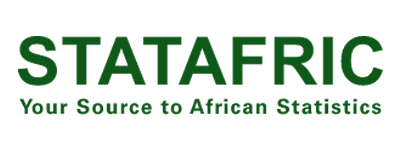The Fifty-Sixth Session of the United Nations Statistics Commission recently took place in New York, highlighting a remarkable spirit of collaboration and unity among African representatives. Spearheading this initiative were Ms. Botho Kebabonye Bayendi, Acting Executive Director of African Union Institute for Statistics (STATAFRIC), and Dr. José Awong Alene, Acting Director of the Coordination Division. Their leadership, alongside directors from various national statistical institutes and pan-African organizations, underscored the continent's strong commitment to advancing statistical practices and policies.
A Broad Agenda of Discussion
The agenda was extensive and covered a wide array of critical topics, including the election of officers, adoption of the agenda, and several key discussion items such as:
- National Accounts
- Population and Housing Censuses
- Fundamental Principles of Official Statistics
- Data and Indicators for the 2030 Agenda for Sustainable Development
- Social and Demographic Statistics
- Migration, Work and Employment Statistics
- Economic Statistics
- Environmental-Economic Accounting
- Business and Trade Statistics
- Price, Crime, and Criminal Justice Statistics
- Food Security and Nutrition
- International Statistical Classifications
- Data Science
- National Quality Assurance Frameworks
- Regional Statistical Development
- World Statistics Day
In addition to these discussion items, the session addressed decision items related to education and environment and climate change statistics, as well as various informational topics covering areas like informal economy statistics and energy statistics.
Key Outcomes and Insights
Throughout the conference, participants engaged deeply with the pressing issues facing statistics today. A standout moment was the endorsement of the Principles and Recommendations for Population and Housing Censuses, which highlights the need for robust statistical frameworks.
African representatives came together with a powerful and unified voice, sharing both successes and challenges while recognizing the pivotal role of the global funding system in supporting national statistical initiatives. Collaboration with essential organizations such as the United Nations Economic Commission for Africa (UNECA), the African Development Bank (AfDB), and STATAFRIC was crucial, reinforcing the importance of mutual support in the pursuit of statistical excellence.
The dynamic interactions at the conference created an invaluable platform for sharing insights and formulating proposals that could catalyze transformative changes across the African statistical landscape. Delegates actively participated in discussions that showcased the continent's commitment to proactive statistical development.
Looking Ahead
The Fifty-Sixth Session of the United Nations Statistics Commission served not only as a critical platform for advancing conversations around African statistical practices but also reflected the unity and leadership among African nations. This gathering fostered essential networks for future collaboration and marked a significant step forward in enhancing the capabilities and methodologies of statistical systems in Africa and beyond.
As we move forward, the insights and proposals born from this session will pave the way for a more data-driven future, empowering African nations to leverage statistics for sustainable development and progress.









